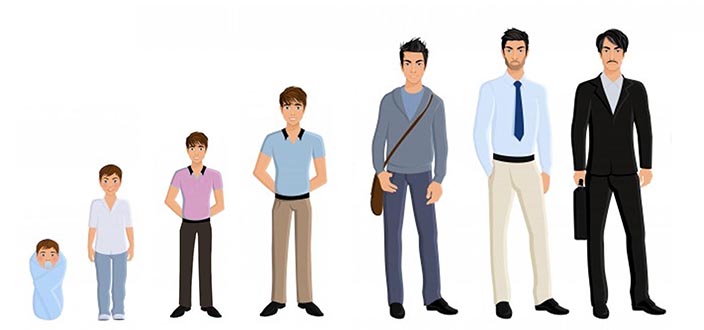Stages of child development – A child goes through distinct stages of development as they move towards adolescence. Experts vary in opinion regarding the number and nature of these stages. Development in these stages depends on many factors like genetic inheritance, environmental conditions. The first study in the field was done by French psychologist Jean Piaget with his theory of cognitive development in children in 1952. Before proceeding ahead, let’s look at what Jean Piaget said in his groundbreaking paper.
Four Stages of child development by Jean Piaget
Sensorimotor Stage: Birth through about 2 years.
In this toddler stage, the child learned from their senses and manipulation of objects. They would splash their hand in the water to feel that it is cold and tear away papers to know that it can be destroyed.
Preoperational Stage: Ages 2 through 7
During this stage, a child is able to understand symbols and signs. This is primarily because they are able to develop their memory and the imagination also kicks in. They also get a sense of time in the form of past, present, and future.
Concrete Operational Stage: Ages 7 through 11.
As the name of the stage suggests, the child becomes operational in the world. He starts to understand the emotions of others and for the first time experiences the emotional conflict. The egocentricity decreases during this stage and common signs of sharing of the chocolate which as a toddler might not have been possible.
Formal Operational Stage: Ages 11 and older
This is the stage when the children are able to solve problems by applying logically and start thinking of future. The horizon for them expands to include a probable career.
Since this theory, experts and child specialists further worked on the cognitive development stages in the child. Below are the stages that are generally accepted by child specialists. These stages also connect well with the education system through which the child eventually has to go through.
Stages Of Child Development by Contemporary Child Experts
Newborn Stage
From birth to one month, the child observes everything through their senses. They try to grasp everything that is close to them and get accustomed to certain faces, smells, shapes, touch, and feel. The child exhibits rooting reflex and tries to grasp things close to him or turns his head at a touch or some sound.
Infant Stage
The stage is between one to twelve months and the infant starts developing physical capabilities. Some of the capabilities can like sitting without support or crawling. This is the time for parents to develop a strong bond with the child the strength of which is reflected for the rest of their life.
Toddler Stage
Between the ages of one to three, the child is able to walk on his own, follow simple instructions and try to get in a particular way of routine. Experimentation with crayons on the wall, water bottles or spreading of things is their way of getting accustomed to the environment.
Preschooler Stage
Between the age of three to five, the child refines his motor skills and becomes more physically active. The communication ability develops and the child is now able to express himself more clearly.
School Stage
Between the age of six and twelve, the child starts becoming more responsible and his behavioral pattern starts getting molded by his environment. The motor skills start becoming strong and secondary sexual characteristics start appearing. Relationship with peer takes the center stage for the child as he starts to identify himself strongly with his friends.
Adolescent Stage
This is the stage when the child starts to establish his own identity in the world. The child is not preparing to go into manhood through a series of physical, mental and sexual changes. You might notice how looks like dresses and hairstyle become more important to the child. Interest in the opposite sex also increases and sometimes eating disorders are also observed. Children might find their increased love for junk and street food at this stage.
Once the child crosses these stages and enters the stage of being a man, he becomes more dependent and his logic of the world has fully developed.
Parents need to understand the changes the child is going through which is the probable reason for their behavior. Perhaps the child may be asking for your attention or maybe just developing his sense of water when he spills the bottle. Parents are not really aware of the Stages of child development and they learn as they go ahead with the first child.
On the topic, Ms. Toni Burns who is a retired mother says “A good obstetrician will explain some basic child care and probably recommend some reference materials. A good pediatrician will explain more about the stages in infants’ and children’s development. For really detailed information, the mother will have to do her own research as well.”
With this knowledge, they can provide the necessary structure, support, and motivation the child may require at a different stage.

